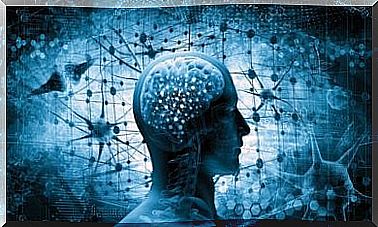The Awareness Of Animal Suffering

Are animals aware of their suffering? For anyone who lives with an animal, the answer to this question is very clear. However, what does neuroscience have to say on the subject? Can we ensure that science proves the awareness that animals have of their own suffering and that of others?
Well, as it could not be otherwise, the answer is “yes”. Neuroscience has overwhelming evidence that all mammals, birds, and other species are aware of their own suffering. The information is not new. In 2013, the Cambridge Declaration addressed this issue with undeniable evidence. Research continues and increasingly confirms this truth.
Homologous circuits have been identified, both in humans and animals, whose activity coincides with conscious experience. It appears that the neuronal circuits that activate while an animal feels an emotion are the same ones that activate in humans for the same emotion. Recognized neurologists around the world evaluate this study and agree that animals experience an awareness of their own suffering.
The Cambridge Declaration on Consciousness
Seven years ago, on July 7, 2012, renowned scientists signed the Cambridge Declaration on Consciousness. This document states that not only humans, but also a significant number of animals, including vertebrates and invertebrates, are conscious beings. This means that they are sentient beings, that is, they experience what happens to them and have mental states that can be positive or negative for them.
There is a scientific consensus of evidence that non-human animals possess the neuroanatomical, neurochemical, and neurophysiological substrates of conscious states along with the ability to exhibit intentional behaviors. In other words, humans are not the only ones to possess the neurological substrates that generate consciousness.

Philip Low, founder and CEO of neurodiagnostic company NeuroVigil in California; Christof Koch of the Allen Institute of Brain Science in Seattle; David Edelman of the Institute of Neuroscience in La Jolla, California, and other prestigious neuroscientists participated in the Cambridge Declaration.
It’s a clear message that confirms that the ability to have both positive and negative experiences makes it possible for a being to be hurt. There is powerful evidence to think that this is what to take into account when it comes to giving someone non-discriminatory consideration.
Recent studies on the awareness of animal suffering
During all this time, studies were carried out that confirmed, once again, these events. Jarrod Bailey and Shiranee Pereira presented in 2016 a research on the brain circuits related to emotions and empathy in dogs. This study confirms and extends the conclusions of the Cambridge statement.
INRA, in collaboration with the European Food Safety Authority, carried out a new updated scientific assessment of the literature on animal awareness. The results were presented in 2017 in Parma, Italy. This research supports that animals have nervous systems that support conscious processes of complex information, including negative emotions caused by nociceptive stimuli.
The study includes different species, including primates, corvids, rodents and ruminants. The research concludes that due to the autobiographical memory observed in animals such as primates, corvids and rodents, it is possible that they have desires and goals that extend into the past and future, and may be negatively affected by the aversive experience.

There are no excuses to justify the suffering of animals
Seven years after the presentation of solid evidence about the awareness that animals have of their own suffering and the plethora of later studies to prove the same, there is no excuse for ignoring animal abuse on the grounds that they do not suffer.
All those who ignore and defend their right to have fun with the damage caused to other living beings should look for other arguments, because science no longer fits. Likewise, the regulation of the right of these living beings to protection and well-being is producing an important echo in the legal field, where this evidence is materializing in the form of laws that will affect many other fields.
Although the study of consciousness in humans is complex, it seems that, from now on, studies on human consciousness will go hand in hand with those of our fellow planets.









